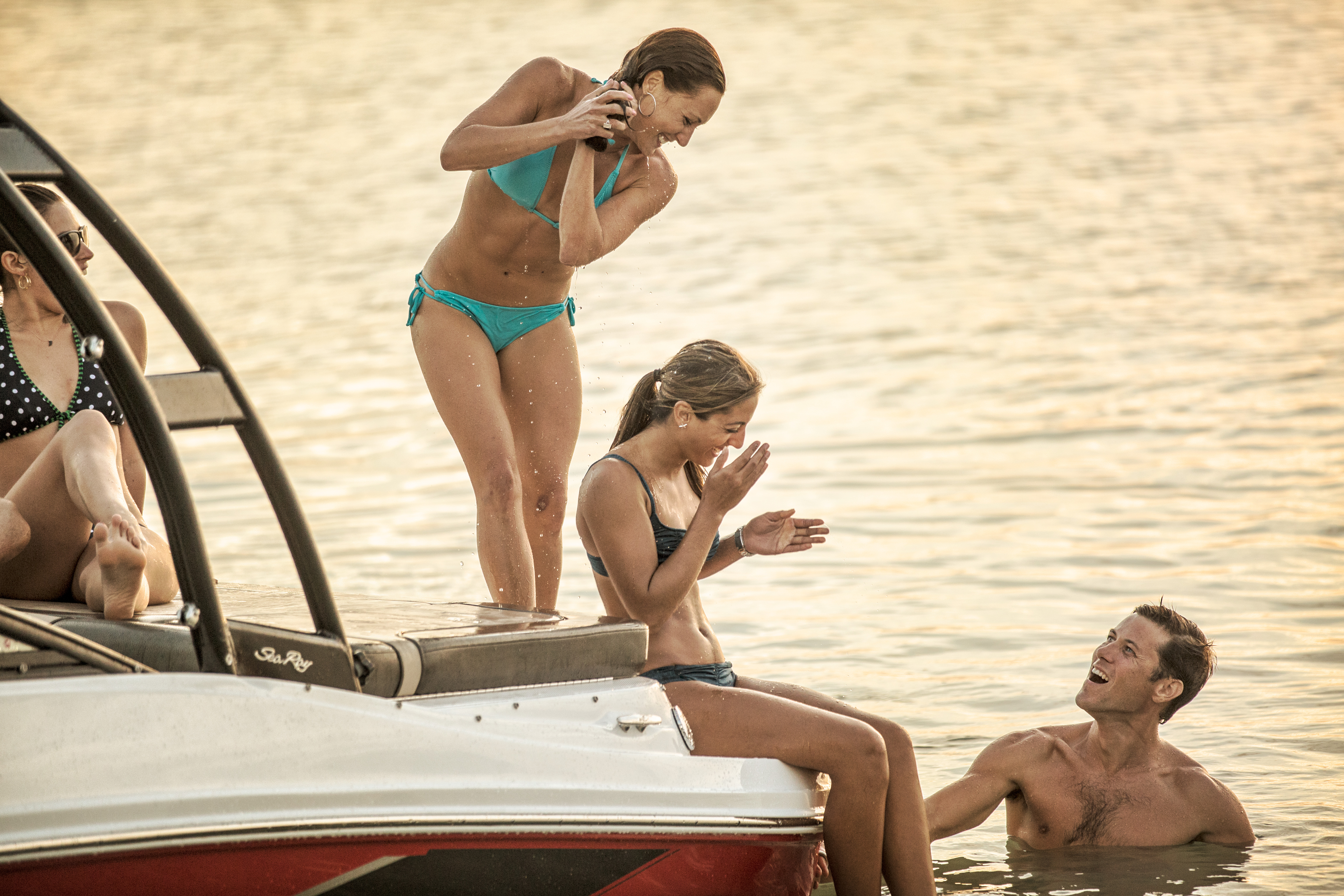Windsurfing is the fastest growing water sport in the world. It's fast paced, colorful, and exciting. In canada, with our cold water and rapid changes in weather, it can also be dangerous. Commen sence safety practices can make windsurfing enjoyable and safe for experienced sailors and novices alike.
If you're new to boating, know the game before you go out and play on the lake or ocean. Take a course, read up on it, or even lessons. Educate yourself before the fun to avoid any troubles. If you're an experienced skipper and had past experience, remember that second nature isn't forever. Go slowly and impress with your mature approach to boating, give your sea legs and nautical confidence a chance to seep back slowly.
Your boat may have all of the latest gear and equipment, but be forewarned. Even the latest nav gear and failsafe gizmos can fail and leave you stranded. Engine failure or electrical shorts do occur, even on the latest, newest and most modern well maintained boats. So have a back-up system that's ready to get you out of a jam, just in case. Anticipate all possibilities and plan what you'll do when everything that can go wrong does.
Make sure you got all your emergency gear onboard that local laws say you must have. If not get it. If you're an ocean boater, have your emergency duffle bag packed and stashed in a grabbable place. Pack it with non perishable food, drinking water, first aid, fishing gear, and whatever else you can think of.
Check Transport Canada's Safe Boating Guide for details, page 16-18.
Flotation Devices would be the personal kind. Got enough onboard for all members? Do they make better anchors than cushions? Life jackets are like a regular jackets, you can't keep them around forever. Make sure they're up to date, not soaking in battery acid, and you have the right size for all members onboard. Because if you don't, the water police will.
Ever head out on the lake only to have something embarrassingly simple go wrong on you. Broken fuel line, fouled spark plug, or shortage of engine oil, don't let maintenance stop you dead in your wake. One should keep the boat up to snuff to enjoy trouble free boating. If you don't have the know how or the time to do it yourself, hire a qualified mechanic to do it for you. Remember that maintenance also prevents major repairs, and that maintenance is also a lot cheaper than a major repair.
An afternoon spent enjoying the wonders of Okanagan Lake can quickly sour when a passenger aboard suddenly experiences a bout of seasickness. Although a somewhat common occurrence, seasickness doesn't necessarily equate to a spoiled boating excursion. Follow the strategies set out below and passengers can stay on to continue the endless recreation that the lake provides.
Combating Seasickness:
It all starts with shivering. Your skin and blood temperature in your arms and legs starts to drop quickly. The temperature drop to your heart , brain and organs slowly follows. Gradually your hands and feet become restricted to movement, leaving you helpless. You may experience difficulty in breathing and become unconsscious. And hopefully your wearing your lifejacket to prevent drowning, or if the temperature drops further you may die of heart failure due to the extreme temperature. The truth of hypotermia is not pleasant but it keeps us practicing, Smart Boating.
Try to get yourself up and out of the water, it will help you to keep warm. Cold water will deplete body temperature faster than the air. So try and pull yourself out of the water by climbing onto the boat, dock or a floating log. If you are alone and are unable to get out of the water, wearing a lifejacket, try to slow the heat loss by taking a position called HELP (Heat Escape Lessening Position). This position can greatly improve your chances of survival. Knees up to your chest, arm wrapped around to hold in place and remain calm. Trying to swim will use up energy needed to survive. On the lake you probably would attempt to swim to shore because the chances of making it are far greater. If you are with other people, all in the same situation, try and warm each other up with bodyheat and huddle. This would also increase the groups chances of survival.
- Constant shivering
- Lacking coordination of movement
- Slowing down and clumsiness
- Numb hands and feet
- Careless behavior and slow reponses
- Decreased attention span
- Dilated pupils
Sometimes people don't realize the importance of not drinking while boating. Alcohol use should be evaluated like all other stresses when it comes to the individual who is operating the boat. Each year hundreds die in boating accidents and many of them can be linked to alcohol use while boating. Nearly eighty percent of the deaths were caused by drowning which is the leading cause of death in the United States. Why is drinking so bad while boating?


